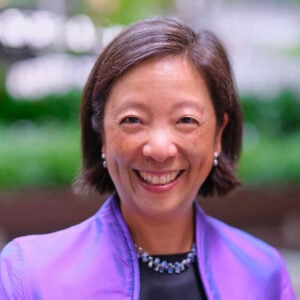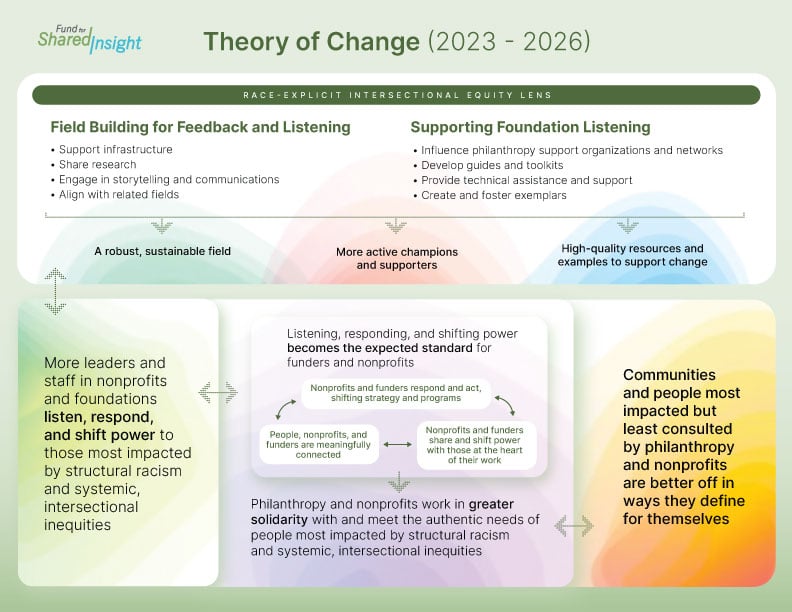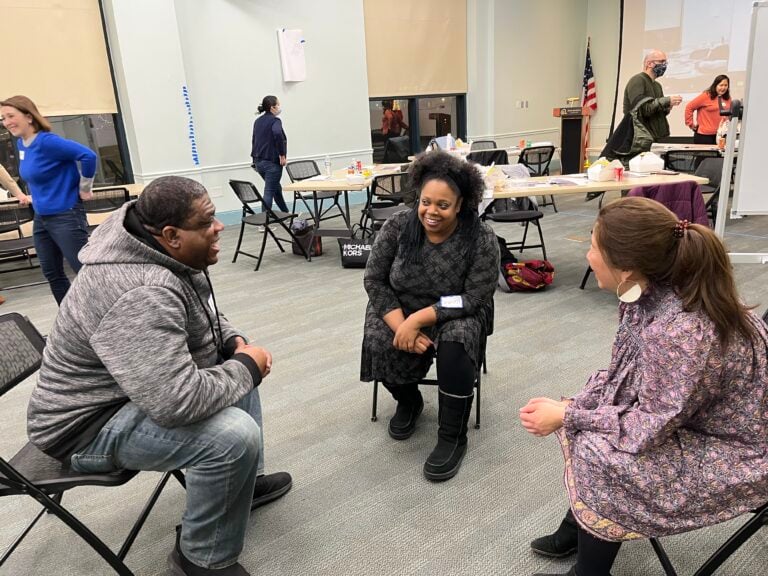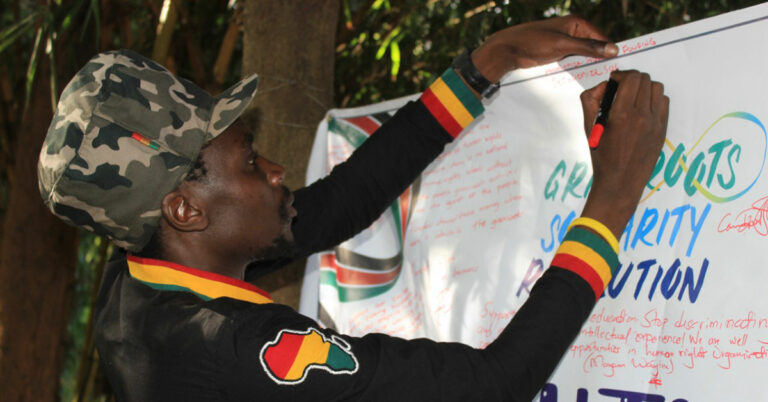This fall, Fund for Shared Insight is entering into an exciting new phase of our work, bringing the knowledge, experience, and momentum we’ve gained over almost a decade to a sharpened focus on supporting foundations to listen well in order to shift and share power with the people at the heart of their work.
We are creating new tools, deepening and expanding our partnerships, and redoubling our efforts to change practices in philanthropy so that listening, responding, and shifting power become the expected norm. This is our goal not just for nonprofits working in partnership and solidarity with clients and participants, but also, significantly, for the funders that support their work.
Our updated theory of change and relaunched website reflect the journey Shared Insight has been on since our founding as a funder collaborative in 2014. As we begin our fourth and likely final, three-year phase (Phase IV), we are proud of what we’ve accomplished so far, including:
- Co-hosting a White House workshop on feedback loops in October 2016, bringing together leaders from government, industry, and the social sector to create momentum and a blueprint for listening to people and communities
- Catalyzing and supporting the feedback and listening field by investing in the success and sustainability of key organizations such as YouthTruth and Feedback Labs, plus a special cohort of philanthropy-support organizations
- Demonstrating through our feedback research portfolio that asking for and collecting feedback is not only the right thing to do, but also the “smart” thing to do – confirming a positive relationship between feedback and better outcomes for participants of nonprofit programs, and benefits for nonprofits themselves
- Designing and launching Listen4Good, a capacity-building program which has helped more than 850 nonprofits listen and respond to their participants, and engaged more than 150 funders as partners to change practice and outcomes
- Building an extensive library of videos and case studies to demonstrate how nonprofits and funders can change in response to listening and feedback
- Exploring power sharing around advocacy and policy work through our Participatory Climate Initiative, and sharing practical and actionable lessons through our Participatory Philanthropy Toolkit.
Along the way, and still today, we are learning how to center equity in everything we do, deepening our understanding of the relationship between listening well and advancing equity, and focusing our efforts on supporting the kind of listening that shifts power to those most impacted by structural racism and other systemic, intersectional inequities.
We always knew the changes we hope to see in the social sector would not happen quickly. It takes time for nonprofits to build the capacity to listen to their participants on an ongoing, systematic basis, and respond and change in meaningful ways. And foundations can take even longer to change – to be open to listening to their grantees and the people at the heart of their work, and, ultimately, shifting programs and power in response to what they hear.
And at the same time, we celebrate the progress we do see. By and large, foundations and nonprofits are no longer asking whether or why they should listen, but rather how best to do it. Listen4Good’s success is a testament to how organizations are increasingly embracing listening as a standard practice. And more foundations are adopting listening practices to inform grantmaking, strategy development, measurement and learning, and governance.
Our own evolution at Shared Insight is a marker of success as well. In July, our core funders approved a revised version of our theory of change that summarizes what we hope to accomplish over the next three years. We remain committed to our long-term goal – that communities and people most impacted but least consulted by philanthropy and nonprofits are better off in ways they define themselves. To get there, we are increasing our emphasis and determination around two key strategy areas – (1) solidifying the field for feedback and listening, while (2) focusing our efforts on catalyzing and sustaining foundation listening practices.
As we embark on Phase IV with a laser-focus on those two levers of change, our efforts include expanding our reach among foundations by working with a growing community of philanthropy-support organizations that participate in our 12-member Funder Listening Community of Practice. We are also continuing to update and improve our Funder Listening Action Menu and our other tools featuring real-life examples of listening in the field. And we will continue to create and curate resources for funders ready to listen well.
We are grateful for all our partner funders throughout the years, and for the continued support from our principal funders, the Barr, Hewlett, Hilton, JPB, Kellogg, and Packard foundations, and additional support from nine other committed funders. We are also grateful for our leadership over the years. Founding co-chairs Fay Twersky, then at Hewlett, and Hilary Pennington, at Ford, set the table for us well when they wrote in 2014 that it’s time for foundations and nonprofits to “reliably consider the perspectives and experiences” of those impacted by their decisions.
Now, as co-chairs Jehan Velji from Hewlett and Yvonne Belanger from Barr lead us into Phase IV, we are proud to see our aspirations and community continue to grow. We are also proud of being explicit about power in philanthropy – and where and how we want to see lasting change in the ways funders approach their relationships and partnerships with the people and communities at the heart of their work.
About the author:








